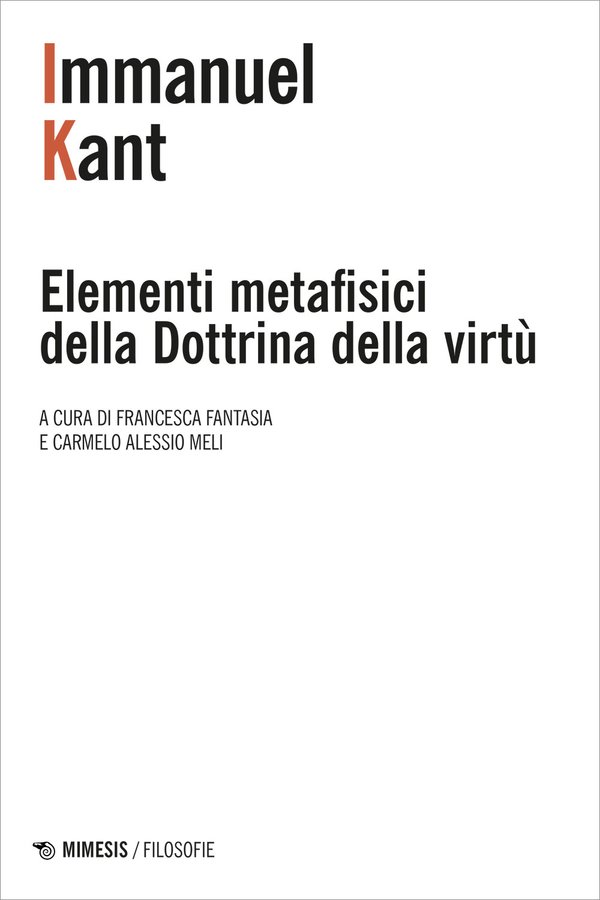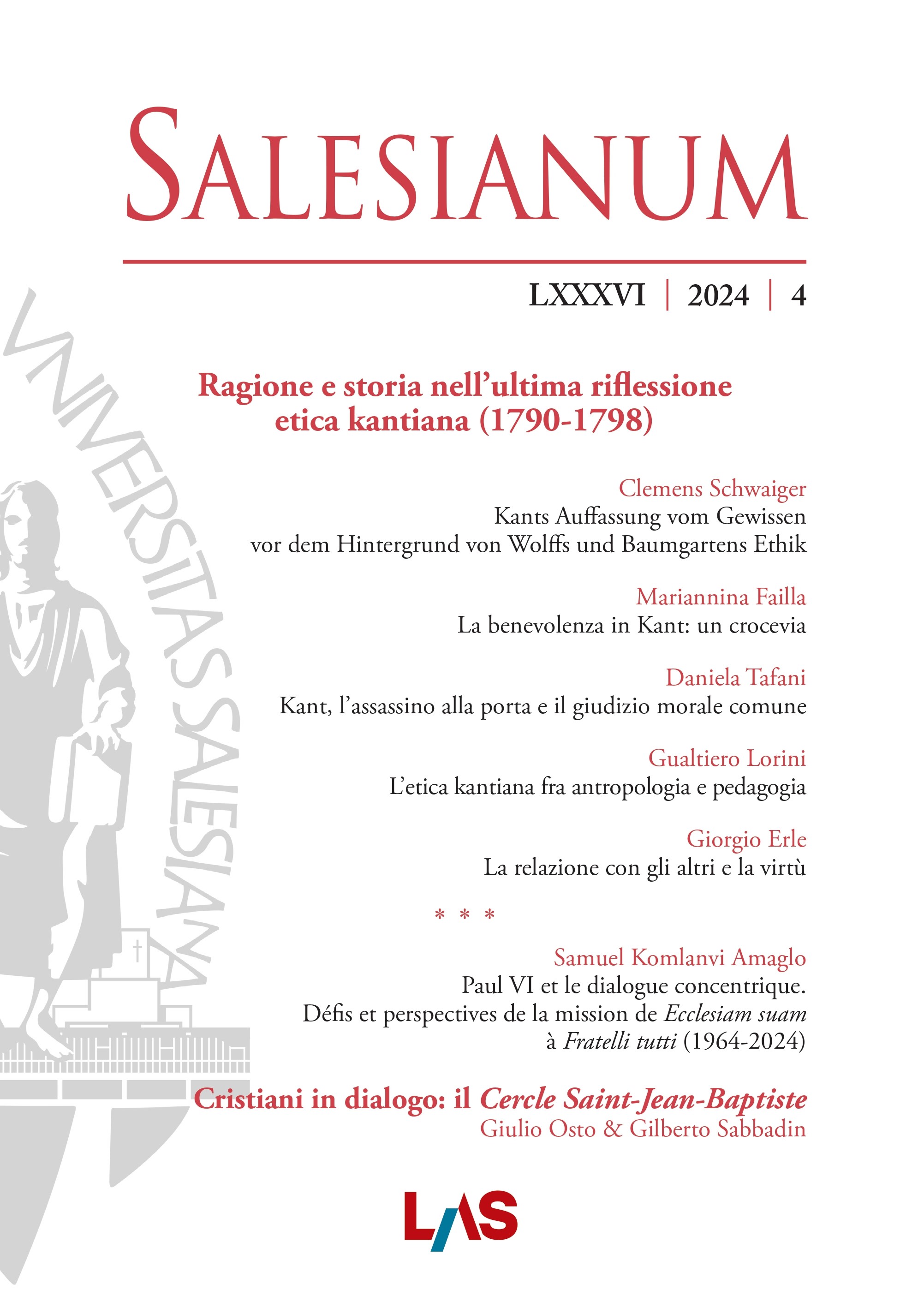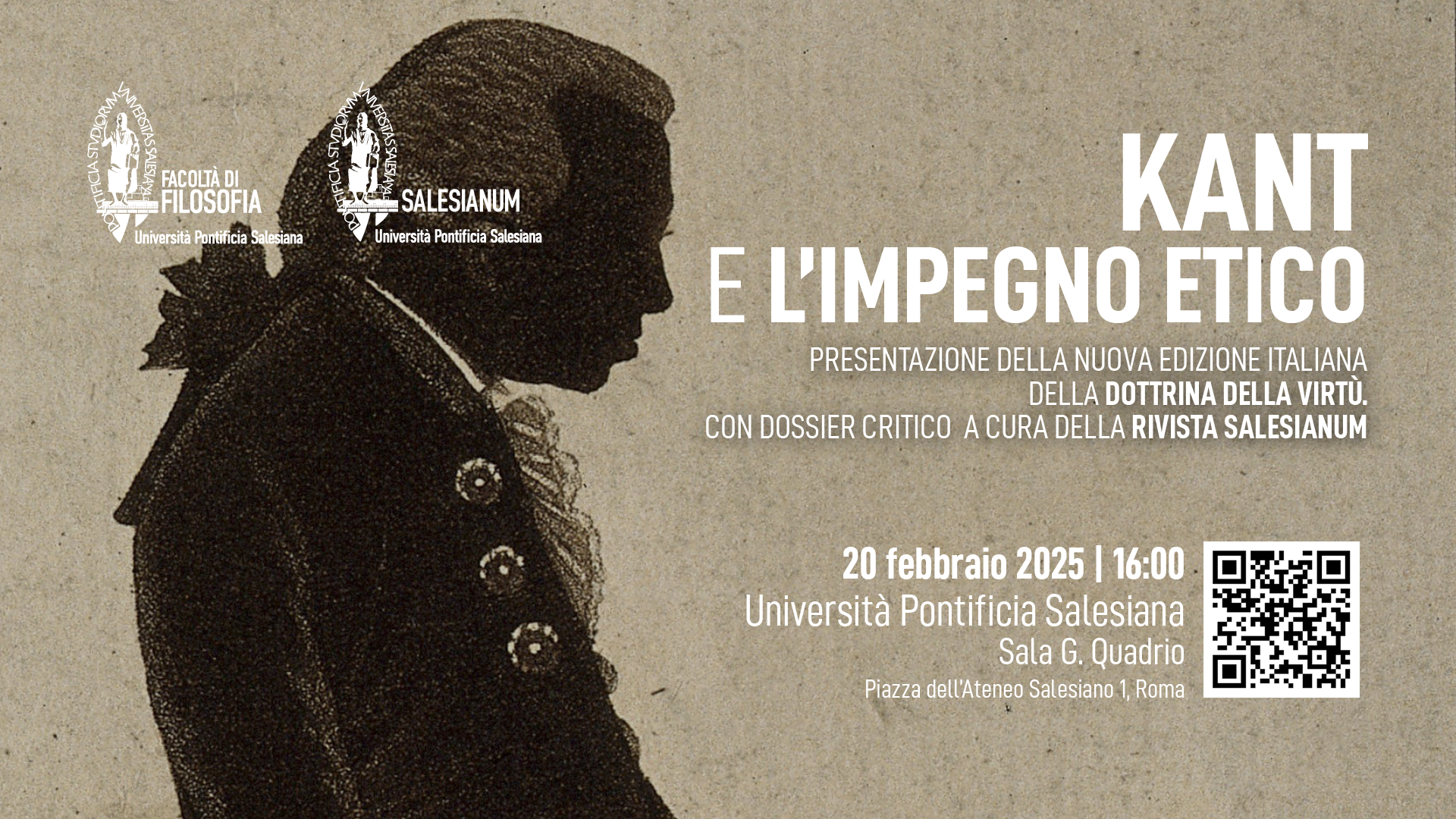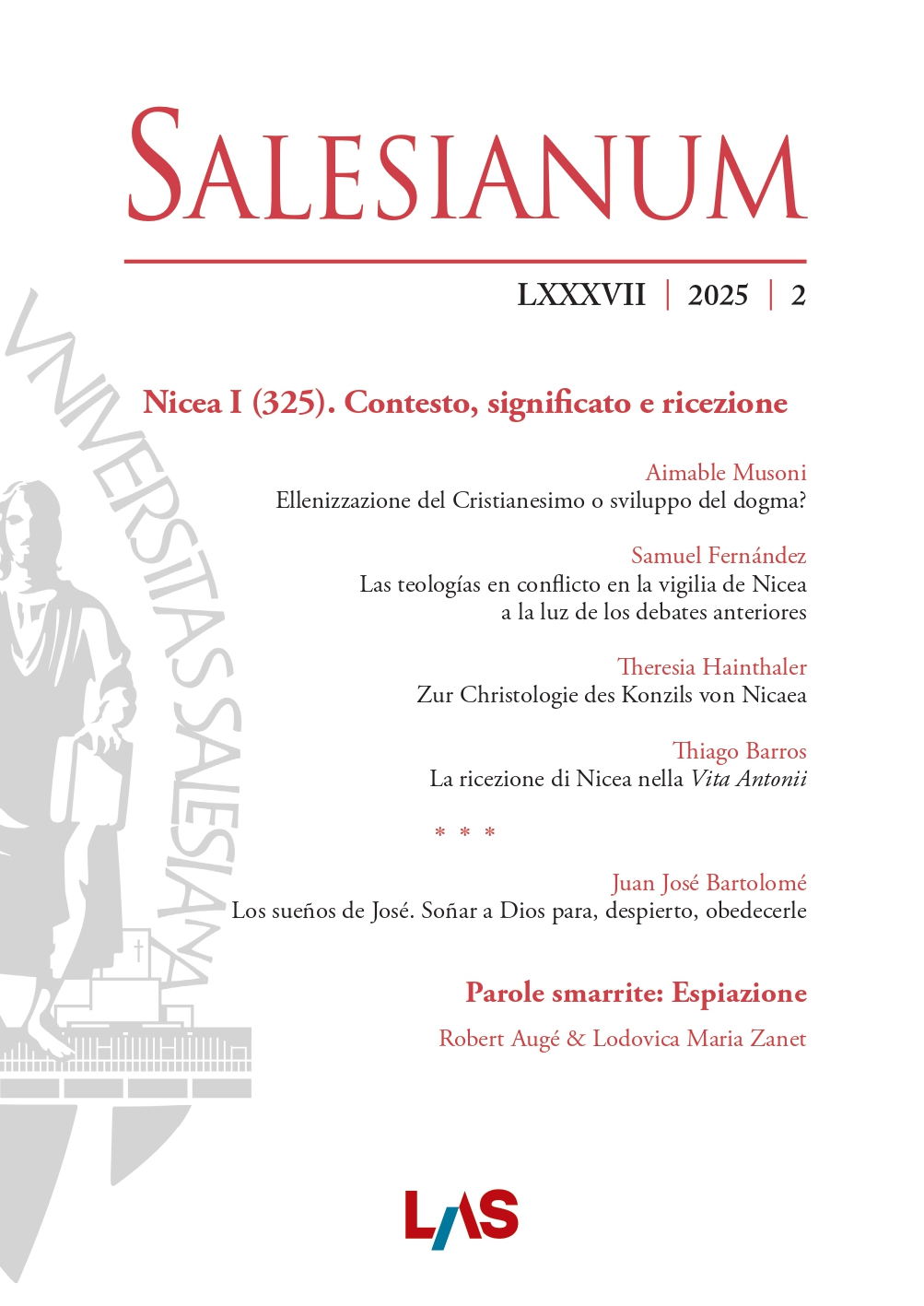Under the title Kant and Ethical Commitment, on February 20, in the Pontifical Salesian University, the presentation of the new critical Italian translation of Immanuel Kant’s Tugendlehre, edited by Francesca Fantasia and Carmelo Alessio Meli (professor of modern philosophy at UPS), took place. The event was accompanied by an introduction to the Salesianum 2024/4 Dossier, Reason and History in Kant’s Last Ethical Reflection (1790-1798), entirely dedicated to analyzing some of the most complex passages of Kant’s work.
passages of Kant’s work.
The event featured three distinguished scholars: Prof. Gualtiero Lorini (University of Verona), Prof. Marco Russo (University of Salerno), and Prof. Gennaro Luise (Pontifical University of the Holy Cross, Rome). Each speaker provided an original contribution to the interpretation of Kant’s late ethics, highlighting the relevance and depth of the issues addressed in his final systematic work on practical philosophy.
 The Metaphysical Elements of the Doctrine of Virtue, the second part of the Metaphysics of Morals (1797), represents a crucial moment in Kant’s moral thought. Here, the philosopher seeks to answer a fundamental question for his ethical theory: how can the categorical imperative become part of the maxims of a human being, subject to inclinations, culture, and the desire for happiness? Kant’s response is complex and laden with technicalities, yet it constitutes a fundamental synthesis of his mature thought. The work proposes a dialogue between reason and nature, avoiding a rigid opposition between the two and instead seeking a path to moral progress that aligns with human freedom.
The Metaphysical Elements of the Doctrine of Virtue, the second part of the Metaphysics of Morals (1797), represents a crucial moment in Kant’s moral thought. Here, the philosopher seeks to answer a fundamental question for his ethical theory: how can the categorical imperative become part of the maxims of a human being, subject to inclinations, culture, and the desire for happiness? Kant’s response is complex and laden with technicalities, yet it constitutes a fundamental synthesis of his mature thought. The work proposes a dialogue between reason and nature, avoiding a rigid opposition between the two and instead seeking a path to moral progress that aligns with human freedom.
The large and engaged audience contributed with questions and reflections, demonstrating a keen interest in Kantian themes and their relevance to contemporary philosophical discussions. The event also underscored the significance of the Salesianum Dossier, which continues to affirm itself not only as a high-level academic journal but also as a valuable tool for deepening and interpreting the classics of philosophy.

